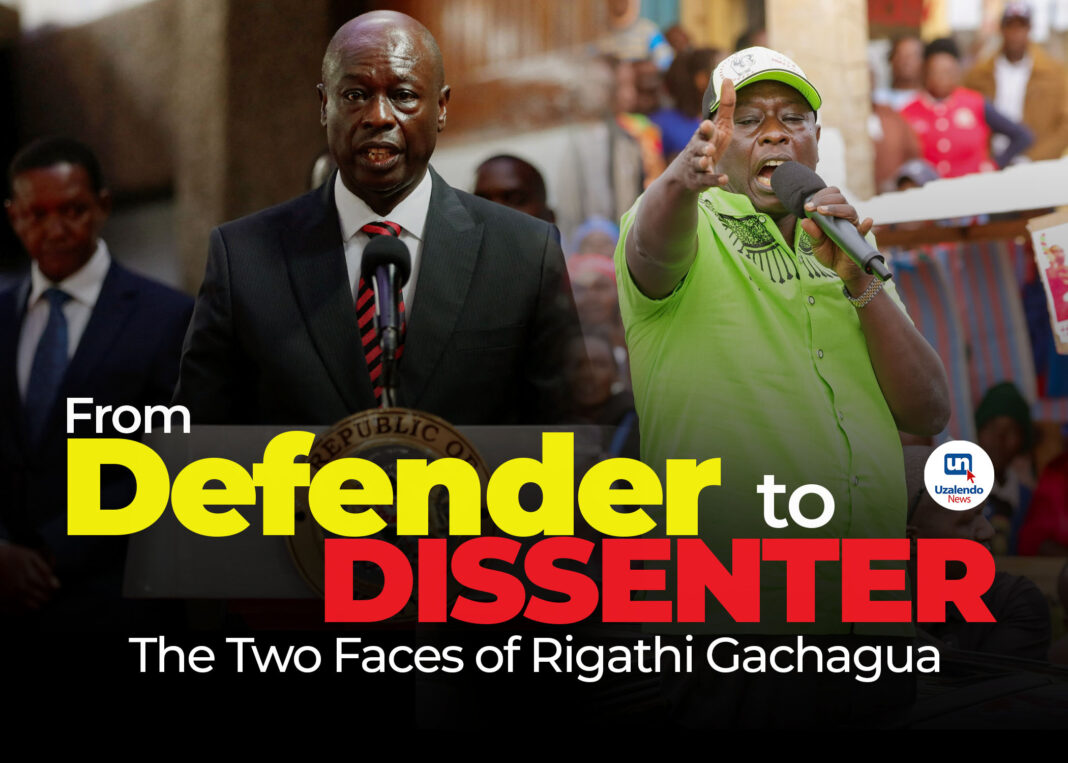Written by Lisa Murimi
Rigathi Gachagua has never been one to shy away from a microphone—or a headline. His booming voice, once the fiercest echo of State House power, now thunders in opposition.
Since his ouster in October 2024, Gachagua has flipped the script with the kind of vengeance only betrayal can breed.
Once President Ruto’s shield, he now aims every barb at his former boss, painting a government gone rogue.
But Kenyans aren’t so quick to forget.
This week, the former Deputy President broke down the government’s violent response to protests over the brutal killing of teacher and blogger Albert Ojwang. His words were piercing:
“Today, we have witnessed one of the lowest moments of our post-independence, Kenya. It is uncivilized to sink our nation into an international shame by a clueless regime that has no value and dignity for human life,” Gachagua posted on his X account.
“Young people and patriotic Kenyans expressing themselves on the death of an innocent Albert Ojwang have been beaten up, their property destroyed, and lives lost in the peaceful protests. Kenyans enjoying their constitutional right to Assembly and Expression are invaded by the police and state sponsored goons under the full glare of the camera, and the whole world stages our nation as a pariah state Mr. President.”
But as Boniface Mwangi Kariuki lies in a hospital bed—his skull shattered by a police bullet—many are haunted not just by the violence, but by Gachagua’s own hypocrisy.
Only a year ago, he told Kenyans protesting high taxes to “expect no kisses” from police. He cheered on the crackdown. He mocked dissenters. He scorned dialogue. The same man who now weeps for protesters once urged officers to stand firm and show no mercy.
What changed?
Gachagua’s fall from grace has been swift and bitter. Impeached, isolated, and ousted from the ruling inner circle, he’s taken up the mantle of rebellion—aligning with former foes, launching his own party, and becoming the loudest voice of resistance.
But while his words now resonate with a country crying out for accountability, his past clings to him like a shadow.
Can a man so deeply complicit in the sins of the state now claim to be its conscience?
Kenyans are listening. But they are also watching—closely. Because they know too well: when power speaks, it often wears a borrowed face.










